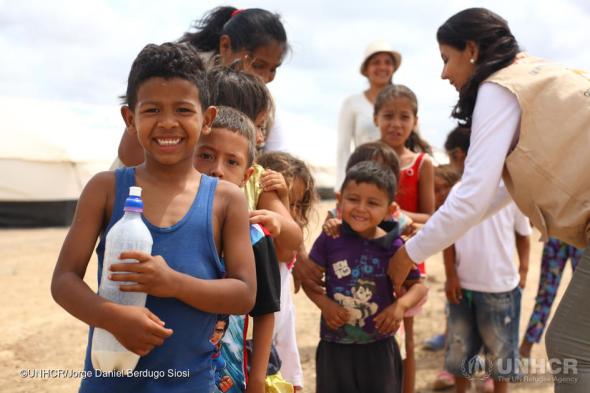Up to the terraces – a privileged view

So this is the view from my terrace in Catania: the Vulcano, the old city, and a glimpse of the sea.
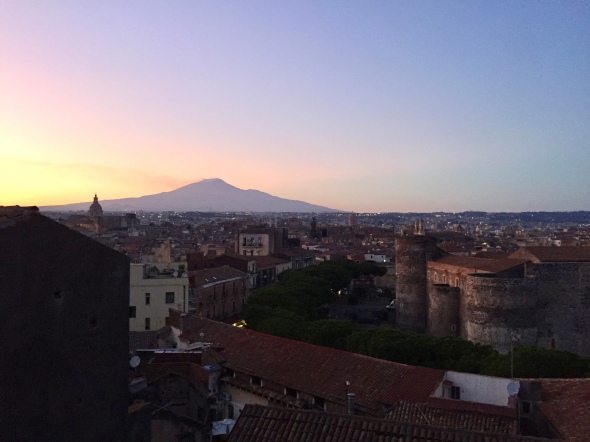
Terraces are my favorite spots, and I look up to see if I can climb some of them, wherever I go.
They give you a privileged view of what you have missed from below, when you were ‘taken’ by the stream of the life: you had to focus on many little things, so you could not see them from the right distance.
Whenever you have the chance to climb a bit, you finally get to see what you’ve been missing while you were concentrating on the small little problems and stresses: the broader picture. Whatever seemed so big and unsolvable down there, now looks like a dot, in the middle of the skyline.
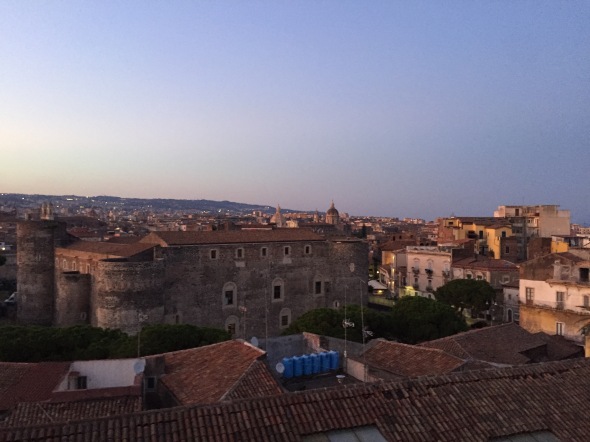
What’s your favorite terrace? And what were you missing before climbing there?
A day in the life – Colombia
The wheels of the car kick up the dust of the desert in La Guajira. Crazy: I’m in the heart of the Caribbeans and what I see for the whole 1.5 hours drive, is just sand. At least I’m in the car – the people I’m going to visit spend days and nights inhaling it.
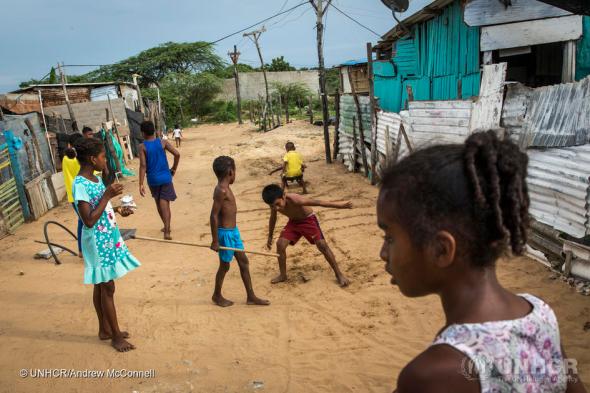
Those who are waiting for me and UNHCR La Guajira team are 350 persons. Families, elderly people, children. Lots of them. They are the “most vulnerable amongst the vulnerable ones”: they were living in the streets of Maicao, north of Colombia, few kilometres from the border with Venezuela. A “far-west” kind of town: border challenges, smugglers, dust, people waiting.
Right now, 350 Venezuelans are hosted in the “CAI – Centro de Atenciòn Integral” as we call it. They will stay in for a month, while they need to look at medium/long term solutions. The centre opened on March 8th by UNHCR and the Colombian government, in partnership with other UN agencies and NGOs. People get food, shelter, medical and psychosocial attention. [The briefing note on the CAI opening is available here]
350 out of the 1,400,000 persons – the number of Venezuelans who currently find themselves in Colombia: a drop in the ocean.
Still, I have daily witnessed something different while I was there on mission with UNHCR: something in their eyes, in their moves, as they were spending their first days at the center, without being concerned for their lives. “We can sleep now, finally. I was sleeping holding a knife – I was afraid we would be attacked in the streets, me or my two kids” said Darlys, mother of two, one of the first families who were hosted at the centre. [We told Daryls’ story here]
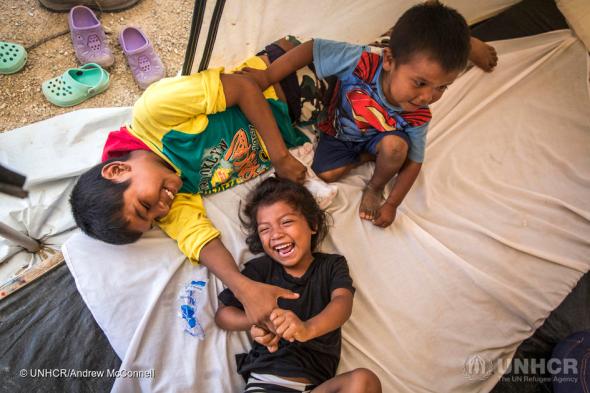
Since 2015, almost 4 millions Venezuelans have fled their country, initially for the runaway inflation. Nowadays, more and more are fleeing every day because of the violence, the blackouts, the fear.
“I escaped the day after my 18-year-old son was killed. You know why they killed him? They wanted to rob him. He had nothing valuable – he must have just tried to defend himself”, cries Yoryanis, mother of three, plus him. “I didn’t have the promptness to take our legal documents – it’s unfortunate, as now I’m struggling to register my 10-year-old daughter to the public school. But I was devastated, I couldn’t think of anything else, other than saving the rest of my kids”.
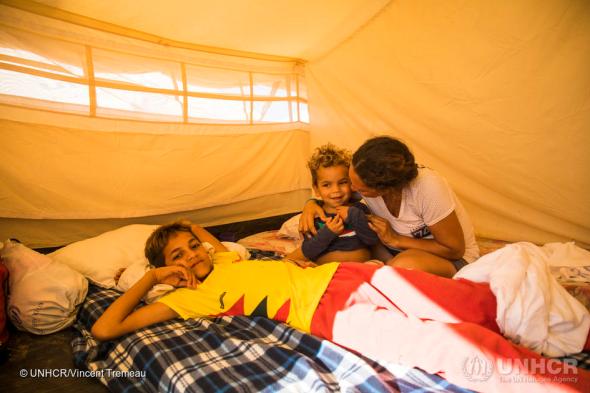
Most of the 1,400,000 Venezuelans in Colombia have nowhere to go once they cross the borders. Many of them take illegal border crossing – the ‘trochas‘ – more than 2,000 km of no man’s land, controlled by armed gangs and traffickers: sometimes they have to pay the few money they had saved, sometimes, if they are girls, they have to pay in another way.
“We are considered cheap here, I’ve heard that we value 2,000 pesos colombianos (approx 70 cents of euro). Still, far more worth than our currency”, says Gladys, 40, mother of three girls, scared for them: she’s trying hardly to save them from the streets, first of all through enrolling them to school.
Many Venezuelans remain close to the borders, as the thousands I saw in the dusty streets of Maicao: they try to save some money and go back to their place, often to share it to family members who stayed behind. They sleep literally in the streets, trying to find some shelters, paying someone to guard their stuff as they look for street-kinds of jobs.
Many others walk for days, or weeks – they are called ‘caminantes‘, trying to go to Peru (which is hosting 800,000 persons) or Ecuador (almost 300,000). [more info on the response for Venezuela here]
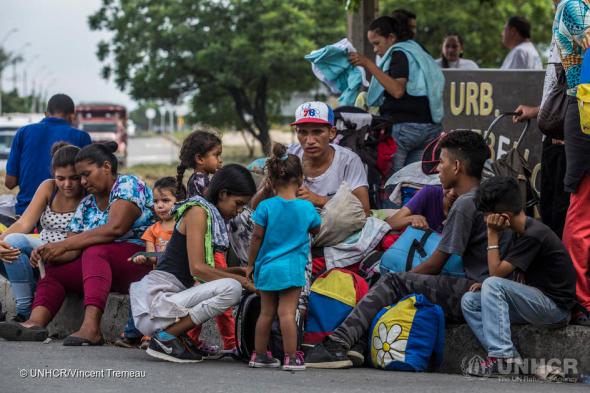
Those who are hosted at the CAI come and go to Maicao city centre, trying to sell chocolate, water, candies – every peso counts, after they lost almost all their savings. Tons of currency has become useless, it’s only good for kids who play with mounts of banknotes as I used to play with “Monopoly”.
Still, I’ve seen hope in the despair. Through a little help – a mattress, a meal, a shower, some entertainment for the kids – people stopped having those daily nightmares. And start re-living again. A month is nothing, 350 persons at a time also, compared to the 4 millions – still, it is a blossom for the future.
My UNHCR colleagues that stayed behind, working 24/7 in the ground, alongside NGOs and volunteers, and local associations – are ensuring that Venezuelans who have fled their homes can find protection and basic support, so that they can survive for the moment. Awaiting for the time they will be able to return home and built a better future.
